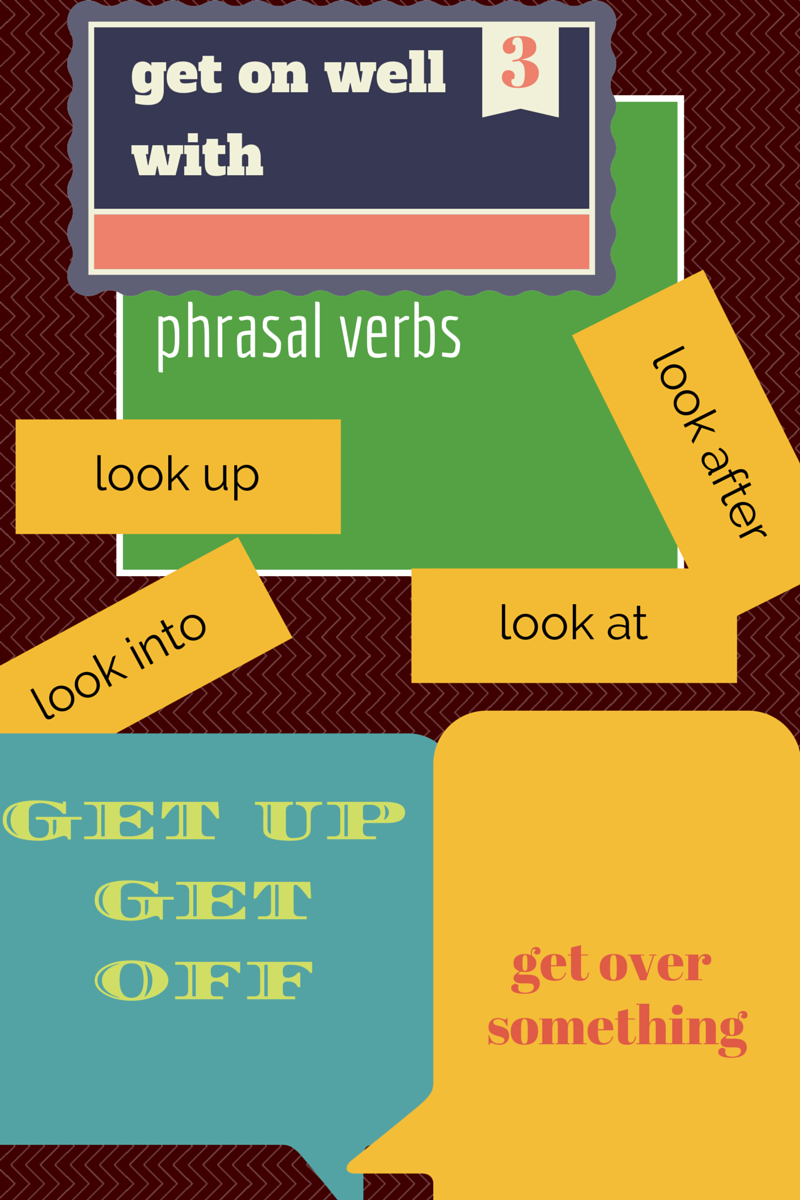Phrasal verbs are everywhere. You wake up in the morning. Then, you get up and put the make-up on (if you are a girl!). You get out of the house and hop on a bus because you want to get to work on time. You write up emails and go to meetings. Finally, after a hard day's work you come back home, put the TV on or listen to the radio. You just need to relax! Phrasal verbs overload!
There are a couple of things that you need to know about phrasal verbs:
1. They always consist of a verb (e.g. put) and a preposition (e.g. on) or a particle (e.g. away)
2. They can also have an object (e.g. 'it', 'her', 'the word') either in the middle or at the end (e.g. put it out, phone her back, look the word up // look for it, look after her, look for the word).
3. The position of the object can sometimes change (e.g. Can you fill in this form. = Can you fill this form in. // I'm going to throw away these old shoes. = I'm going to throw these old shoes away.)
4. They can have literal and non-literal meaning. Take the following sentence.
Yesterday, I picked up a girl.
Literal meaning is this:
 |
| You actually lifted a girl off the ground. |
 |
| You chatted to a girl and she liked you. |
5. They are best learn when you see/listen to them in context. It's pointless trying to memorise them because they are just too confusing!
In order to get to grips with all this phrasal verbs business, try the following exercises:
Online game (easier)
Select correct particle/preposition (difficult)
Select correct particle (quite difficult)
Different games according to the verb

